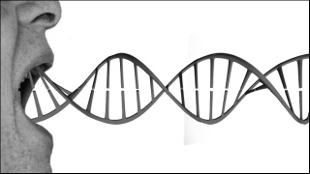 iStock, Steven Heap, Luis Carlos TorresIt seemed inevitable that the biotech and pharmaceutical industries would take an interest in the bourgeoning field of DNA sequencing by leveraging evolving technologies to sell people their own genetic data. In the past decade, researchers and entrepreneurs founded companies like 23andMe and Navigenics dedicated primarily to marketing personal genome scans. Some established companies, like deCODE Genetics, have also begun offering personal genomics services. And this past April, Swiss healthcare giant Hoffman-La Roche proposed a buyout of the US company serving as the technological backbone of this industry, Illumina, for an impressive $6.7 billion. Though the deal was ultimately rejected—largely for financial reasons—it nonetheless represents Pharma’s potential interest in the business of direct-to-consumer genetics.
iStock, Steven Heap, Luis Carlos TorresIt seemed inevitable that the biotech and pharmaceutical industries would take an interest in the bourgeoning field of DNA sequencing by leveraging evolving technologies to sell people their own genetic data. In the past decade, researchers and entrepreneurs founded companies like 23andMe and Navigenics dedicated primarily to marketing personal genome scans. Some established companies, like deCODE Genetics, have also begun offering personal genomics services. And this past April, Swiss healthcare giant Hoffman-La Roche proposed a buyout of the US company serving as the technological backbone of this industry, Illumina, for an impressive $6.7 billion. Though the deal was ultimately rejected—largely for financial reasons—it nonetheless represents Pharma’s potential interest in the business of direct-to-consumer genetics.
This trend signals rapid growth in a critical area of research but it also raises a concern: one of the interested parties, corporate Pharma—for whom fiscal budgets often include anticipated fines from government agencies—doesn’t have the most pristine record of ethics. Understandable, then, is the national fracas over determining if and how DTC genetics should be regulated.
When the US Food and Drug Administration (FDA) convened in March of last year, officials were concerned that without proper guidance, people might react disproportionately to news of their predispositions to certain ailments. Most of the diseases on parade needed little introduction: Alzheimer’s, leukemia, cystic fibrosis, breast cancer, Huntington’s, and too many more. In an age suffused with genetic determinism, there’s almost no affliction that some scientist isn’t ...



















